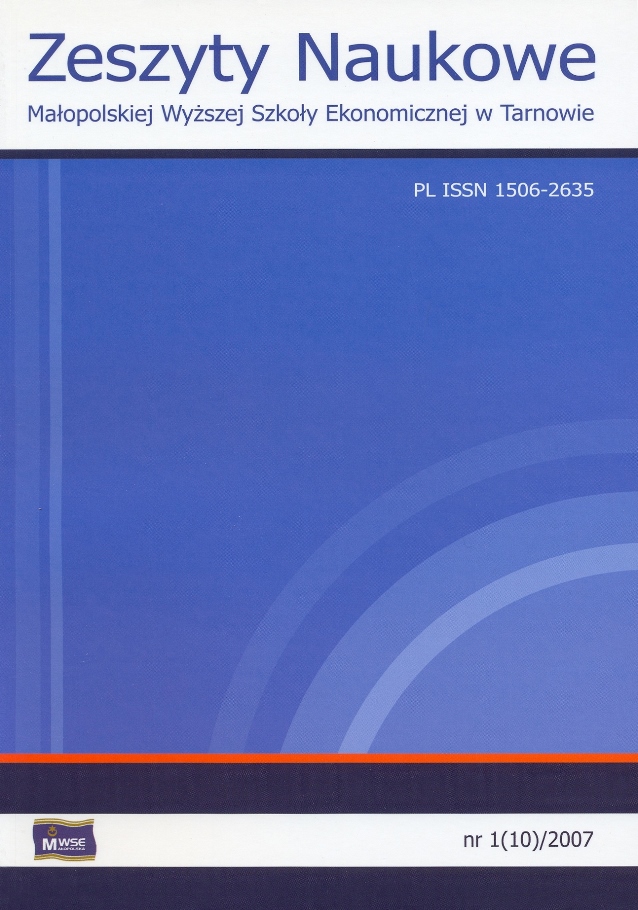Abstract
The thesis shows a problem of individualistic factors, which predict mountain lifeguards’ behavior and indicate a possibility of using psychological knowledge in human resources management of a Voluntary Mountain Emergency (VME) organization. The main problem is to identify psychophysical properties, which influence the efficiency and safety of saving actions being carried out. In general, this behavior originates from performing saving tasks. The thesis particularly describes organizational behavior: saving activities and their efficiency. As it comes to human resources management in VME, the most reflective and interesting in a psychological way is risky behavior, which involves participation in saving actions, especially in extreme conditions. The thesis suggests system development of safety management in the mountains as well as risk management in dangerous situations, where lifeguards’ health and life is at risk. Safety management was described as actions causing accident risk reduction and decreasing their effects. Suggested organization of the safety system in the mountains involves both preventive and helpful behavior of people, who need help.
References
Fasiński A., Jonak A., Silberring J. 1983. Poradnik Ratownika GOPR. Warszawa: Wydawnictwo PTTK „Kraj”. T. I.
View in Google Scholar
Freeland L. T. 1993. The Holistic Approach to Achieve Zero on and off Job Lost Time Injuries.Sydney: Minasafe.
View in Google Scholar
Griffin R.W. 1999. Podstawy zarządzania organizacjami. Warszawa: Wydawnictwo Naukowe PWN. ISBN 83-01-12019-3.
View in Google Scholar
Hebda A. 1987. Kompensacja odstępstw od zaprojektowanego przebiegu procesu produkcyjnego w warunkach zagrożeń wypadkowych. Ergonomia stanowiska. Kraków.
View in Google Scholar
Jonak A. (red.). 2002. „Na każde wezwanie...”: pięćdziesiąt lat działalności Górskiego Ochotniczego Pogotowia Ratunkowego 1952–2002. Praca zbiorowa. Kraków: Centralny Ośrodek Turystyki Górskiej PTTKm: Oficyna Wydawnicza „Wierchy”. ISBN 83-915387-5-3.
View in Google Scholar
Kostera M. 1994. Zarządzanie personelem. Warszawa: PWE. ISBN 83-208-0938-X.
View in Google Scholar
Kostera M.1996. Postmodernizm w zarządzaniu. Warszawa: PWE. ISBN 83-208-1017-5.
View in Google Scholar
Koźmiński A., Obłój K. 1989. Zarys teorii równowagi organizacyjnej. Warszawa: PWE. 83-208-0728-X
View in Google Scholar
Koźmiński A., Piotrowski B. 1999. Zarządzanie. Teoria i praktyka. Warszawa: Wydawnictwo Naukowe PWN. ISBN 83-01-12705-8.
View in Google Scholar
Lachiewicz S. (red.) 2007. Zarządzanie rozwojem organizacji. Łódź: Monografie Politechniki Łódzkiej.
View in Google Scholar
Leplat J. 1982. Accidents and Incidents Production: Method of Analysis. New York: “Journal of Occupational Accidents”. Nr 4.
View in Google Scholar
Longden J. C. H. 1993. The Management of Health and Safety at the Workplace, Sydney: Minasafe.
View in Google Scholar
Łucewicz J. 1999. Organizacyjne zachowania człowieka. Wrocław: Wydawnictwo Akademii Ekonomicznej we Wrocławiu. ISBN 83-7011-368-0.
View in Google Scholar
Mrozowicz K. 2005. Rola społeczno-zawodowa ratownika Służby Górskiej. Warszawa: „Kultura Fizyczna”. Nr 5–6/2005.
View in Google Scholar
Mrozowicz K. 2006a. Zarządzanie bezpieczeństwem w górach w świetle osobowościowych determinant zachowań ratowników Górskiego Ochotniczego Pogotowia Ratunkowego. Maszynopis dysertacji. Kraków: Biblioteka Uniwersytetu Jagiellońskiego.
View in Google Scholar
Mrozowicz K. 2006b. Zasoby ludzkie organizacji Niebieskiego Krzyża w pryzmacie funkcjonalnych cech osobowości. Jarosław: „Jarosławskie Studia Społeczne”. Nr 1/2006.
View in Google Scholar
Mrozowicz K. 2007. Niektóre aspekty zarządzania potencjałem osobowościowym na przykładzie Górskiego Ochotniczego Pogotowia Ratunkowego. W: S. Lachiewicz (red.). Zarządzanie rozwojem organizacji. Łódź: Monografie Politechniki Łódzkiej.
View in Google Scholar
Niczyporuk Z. T. 1996. Kształtowanie bezpieczeństwa na przykładzie eksploatacji zmechanizowanych kompleksów ścianowych w kopalniach węgla kamiennego. Katowice: Prace Naukowe Głównego Instytutu Górnictwa. Nr 817.
View in Google Scholar
Petersen D. 1988. Safety Management – A Human Approach. New York: Alorey Inc.
View in Google Scholar
Pidgeon N. F., Turner B. A. 1986. Human Error and Socio-Technical System Failure. W: A.S. Nowak (red.). Modeling Human Error in Structural Design and Construction. New York: American Society of Civil Engineers.
View in Google Scholar
Rotter T. 2001. Psychologia likwidacji wypadków drogowych. Kraków: Text. ISBN 83-88934-10-4.
View in Google Scholar
Rotter T., Wontorczyk A. (1992). Risk Perception in Drivers with Different Driving Licenses. Wiedeń: Proceeding of 4ht Workshop of ICTCT in Vienna.
View in Google Scholar
Saari J. (red.) 1987. Successful Accident Prevention. Helsinki: Institute of Occupational Health. ISBN 9518016127.
View in Google Scholar
Smircich L. 1985. Is the concept of culture a paradigm for understanding organizations and ourselves? . In: E. Frost (red.). Organizational Culture. Beverly Hills: Sage Publisher.
View in Google Scholar
Stalewski T., Łucewicz J. 1994. Socjologia organizacji. Problemy podstawowe. Wrocław: Wrocławska Oficyna Nauczycielska.
View in Google Scholar
Statut Górskiego Ochotniczego Pogotowia Ratunkowego 1977. Zakopane.
View in Google Scholar
Statut Tatrzańskiego Ochotniczego Pogotowia Ratunkowego 1991. Zakopane.
View in Google Scholar
Stoner J.A.F., Freeman R.E., Gilbert D.R. 2001. Kierowanie, Warszawa: PWE. ISBN 83-208-1295-X.
View in Google Scholar
Studenski R. 1994. Szacowanie i ograniczanie ryzyka. Warszawa: ,,Atest – Ochrona Pracy”. Nr 6.
View in Google Scholar
Studenski R. 1996. Organizacja bezpiecznej pracy w przedsiębiorstwie. Gliwice: Wydawnictwo
View in Google Scholar
Politechniki Śląskiej. ISBN 83-85718-47-8.
View in Google Scholar
© Copyright by Małopolska School of Economics in Tarnów. The articles are available under the Creative Commons Attribution NonCommercial-NoDerivatives 4.0 International License


